How Are Nigerians Crafting Earthquake-Proof Homes Out of Plastic Bottles?

©️ Al Jazeera English / YouTube
Imagine a construction method that not only tackles one of the world’s most pressing environmental crises but also redefines how we think about building homes.
What if the solution to both our housing shortages and plastic pollution lay in something as simple as plastic bottles? Would you ever consider that?
In Nigeria, a groundbreaking technique is turning discarded bottles into earthquake-proof homes, blending tradition with innovation in a way that’s as surprising as it is transformative.
How does this seemingly unconventional approach work, and what could it mean for the future of sustainable living? This is how we end up with the story behind Nigerians’ earthquake-proof homes built out of plastic bottles.
The Bottle Trick: Nigerians Earthquake-Proof Homes
The concept is simple yet revolutionary. Plastic bottles, filled with sand, are used as building blocks for constructing homes. These sand-filled bottles, with their bottoms facing outward, form walls that are bound together with mud.
The result is a structure that is not only visually distinctive but also incredibly resilient. The first such home was built in the village of Yelwa, Nigeria, and has since become a symbol of innovation and sustainability.
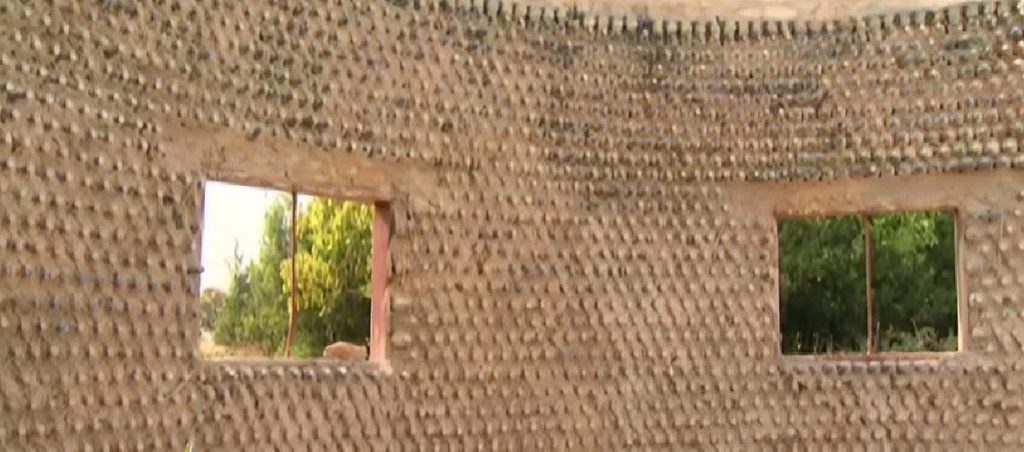
Each home constructed using this method requires around 7,800 plastic bottles. The circular design of these homes aligns with traditional Nigerian architectural styles, integrating modern sustainability with cultural heritage.
This method has proven to be 67% cheaper than traditional concrete and brick construction, making it an affordable option for many.
Strength and Resilience
The strength of these plastic bottle homes is impressive. The compacted sand inside the bottles is reported to be up to 20 times stronger than traditional bricks.
This remarkable strength contributes to the homes’ ability to withstand earthquakes and even bullets, making them both safe and durable.
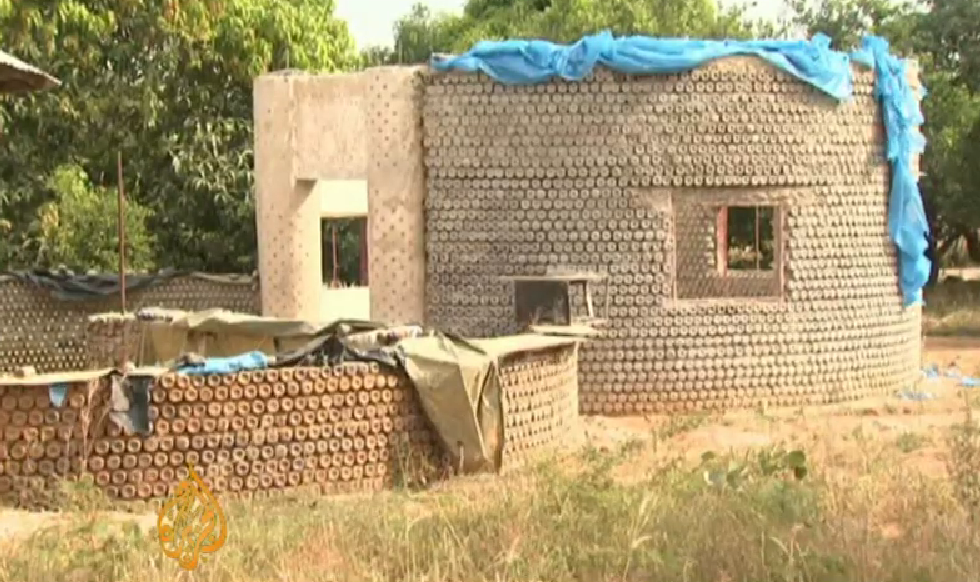
Beyond their robustness, these homes are well-suited to Nigeria’s hot climate. The sand filling provides excellent insulation, keeping the interiors cool despite the scorching heat outside.
Environmental Impact and Challenges
Nigeria faces a significant environmental challenge with plastic waste, particularly from the bottled water industry. With approximately 2.5 million tons of plastic waste generated annually, the country has struggled with inadequate recycling facilities.
By repurposing plastic bottles into construction materials, the “bottle trick” offers a practical solution to reduce plastic waste and decrease pollution in public spaces and waterways.
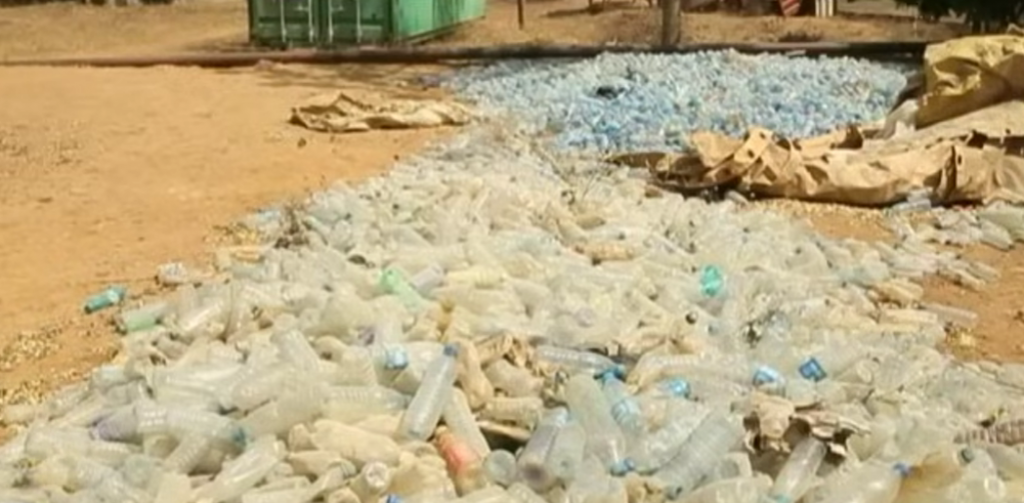
However, the increased demand for sand, a crucial component of this construction method, raises concerns. Excessive sand excavation could lead to environmental degradation and increased costs, potentially undermining the affordability of these homes.
Despite this, the initiative has sparked hope for sustainable development and job creation.

Global Interest and Future Prospects
The success of Nigeria’s plastic bottle homes has attracted international attention. A Greek environmentalist has donated funds to support the project, and there are plans to expand this technology further.
Upcoming projects include a three-story building and a school to provide education and job opportunities for local communities.
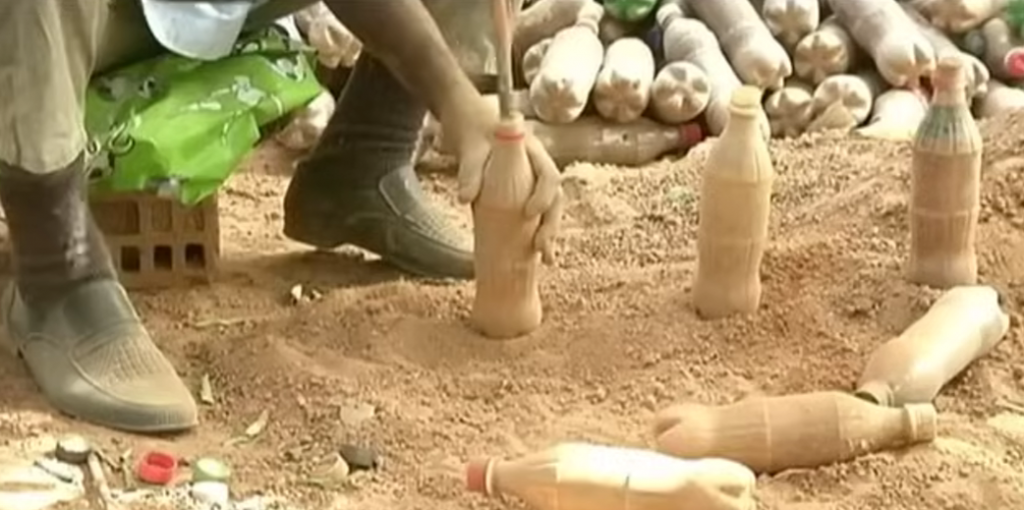
In essence, Nigeria’s innovative approach to building with plastic bottles represents a significant step forward in sustainable construction. It not only addresses the urgent issue of plastic waste but also provides affordable, resilient housing solutions.
As the world grapples with environmental challenges, this pioneering technology offers a beacon of hope and a model for other nations to emulate.
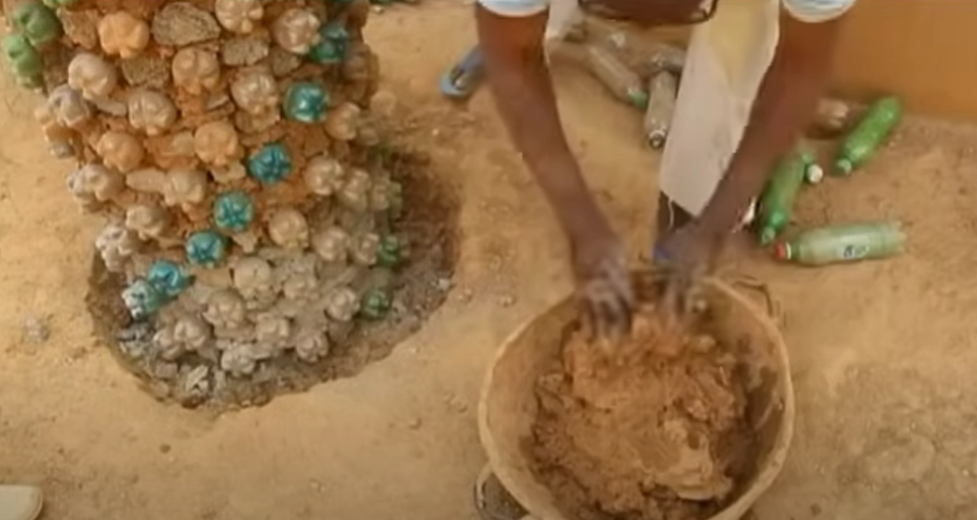
By turning plastic waste into sturdy homes, Nigeria is setting a precedent for reimagining waste management and sustainable living. While challenges remain, the “bottle trick” underscores the power of ingenuity in driving positive environmental and social change.
You may also like: The Myth of Sustainable Fashion


